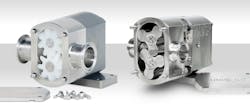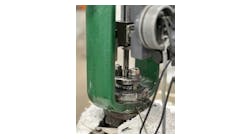How computerization improves supply-chain management continues to evolve. While emphasis began with model-based, long-range planning, the crux of the matter is really supply-chain coordination and execution.
Two reasons for this are suggested. One is that long-range plans are so perishable, with frequent changes in demand, supply or process capacity; the second is that with computerization being ubiquitous, real-time insight into the supply chain’s current state is increasingly possible.
The impediment then becomes integration. Successive technology generations and vendor competition leave us with incompatible standards and formats. The seemingly simplest of enquiries turns into an agonizing tale, not concerned with content, but rather with databases and compatibilities and vendors and ending with "we’re not quite to that point yet."
"A big automotive company might be able to influence its supply base to adopt a given VDA standard," says Rich Katz, CTO of Elemica. “But mid-size companies have suppliers in many different industries. Each industry has its own standard. They don’t want to adopt yours.”
If not ours, whose?
Focused on process industries, Elemica combines supply-chain applications — which can now reside in the cloud — with networking services that support transactions across an extended supply network.
“We have a ‘come-as-you-are’ approach,” says Katz. “We have a ‘universal business document’ to make these translations. We do the mapping to take out the friction.”
In a recent presentation on its use of Elemica, Syngenta, an agricultural provider, says it had its EDC (Electronic Document Communication) strategic program to integrate and transact business with 90 trading partners and its ERP and CRM solutions. It has 240 distinct transactions that can take place using EDI and other message forms, including invoices, advanced shipping notices, order create and others. Adding new trading partners was complex and transactions were not in real time.
“Many companies will try to do it themselves to a certain point and then they stop,” says Katz. “We give them the coverage they need so that everyone just has to connect once.”
Let the on-boarding begin
The complex orchestration needed includes exchanging connectivity information, identifying security considerations, exchanging transformation information, establishing standards, developing data transformation routines and establishing special processing rules.
Elemica says its on-boarding process automates time-consuming activities. Users, which include companies like BASF, Dow, DuPont and Michelin Goodyear, can do trading-partner connectivity campaigns with high degrees of automation, both for existing processes and for things like vendor-managed inventory that otherwise wouldn’t be possible.
Thousands of companies connected seamlessly across a supply chain operating platform allow participants to better conduct business with each other and leverage their collective activities to achieve operational efficiencies and significant cost savings. Syngenta says it reaches more trading partners all across the world and handles different messaging types and transactions.

